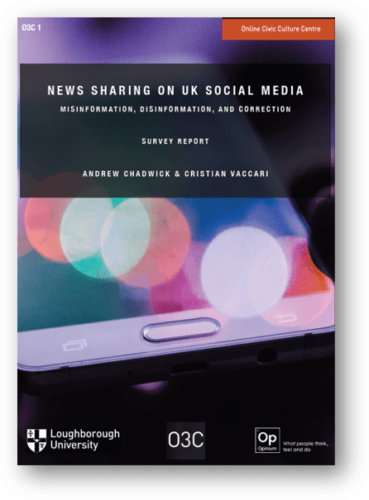Understanding fake news

It seems fitting on the day of the local election results that our work with Loughborough University into the spread of disinformation and misinformation is published.
In today’s media systems large swathes of the population circulate political information with great regularity. And, as a consequence, false and misleading information can become widely distributed and fast.
It’s a problem that has for the past four years received huge media attention, but the question remains, how can we counter, challenge and ultimately stop the spread of ‘fake news’?
If greater numbers of people than ever may be more likely to encounter false and misleading information on a daily basis, we need to better understand why so many people will readily share false and misleading information online. Exploring why, and with what effects, people share news about politics on social media is therefore an essential part of the broader debate about the relationship between the internet and democracy.
In April 2018, Opinium joined the Advisory Board for Loughborough University’s Online Civic Culture Centre, to explore the motivations that drive people to share political news on social media and how these might be contributing to changes in our online civic culture. Written by Professor Andrew Chadwick and Dr Cristian Vaccari, this report is the first to address these issues in Britain and in its understanding, represents what we believe is the first step towards a more civic online culture.
Read the full report here:





